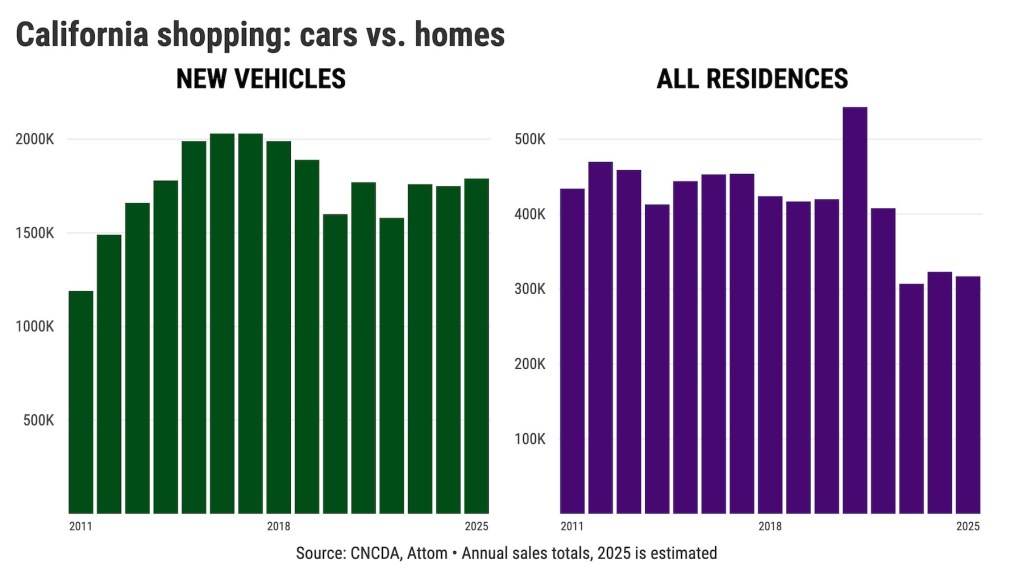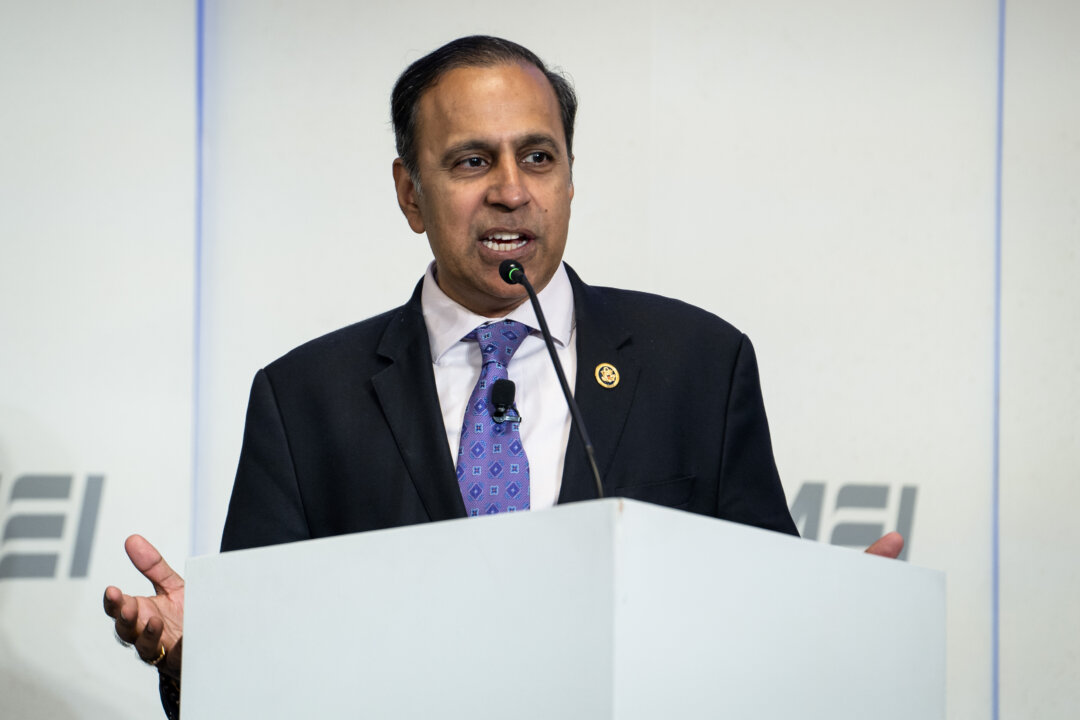UPDATE: Californians are showing increasing reluctance to purchase homes and new vehicles, signaling deepening consumer hesitation amid ongoing economic uncertainty. Reports released today reveal that vehicle sales in California are projected to hit only 1.79 million in 2025, a mere 2% increase from the previous year, following a 1% decline in 2024.
Home sales are not faring any better, with 317,000 residences expected to be sold in California this year—a 2% drop compared to 2024, which saw a 5% increase. This trend highlights a significant shift in consumer confidence as economic woes plague the state.
The reluctance to make major purchases stems from a combination of rising prices and high interest rates. The average price of a new car has surpassed $50,000, while mortgage rates have surged to 6.8% for a 30-year loan, compared to just 2.9% in 2020. Additionally, the cost of financing a five-year car loan has climbed to 7.9%—up from 4.5% in 2022—placing further strain on household budgets.
According to John Sackrison, executive director of the Orange County Auto Dealers Association, “Uncertainty tends to make consumers pull back.” This sentiment is echoed across the nation, where vehicle sales have dropped to a 16.3 million annual pace in 2025, marking a 3% decline from last year. Homebuyers nationwide are also feeling the pinch, with purchases running at a pace of 4 million annually, a 2% decrease from the previous year.
These figures starkly contrast with pre-pandemic highs, where California vehicle sales reached 2.03 million in both 2016 and 2017. Currently, sales are 12% below that benchmark, while home sales are a staggering 42% lower than the peak of 543,000 in 2021.
The confluence of economic challenges—including stalled hiring and pay raises—has left many Californians feeling insecure about making significant financial commitments. The state’s unique economic climate, influenced by factors such as the Trump administration’s policies, has contributed to a pervasive lack of consumer confidence.
Looking ahead, experts suggest that without a shift in economic conditions, the trend of cautious spending will likely continue. Automakers are already responding with various incentives to entice hesitant buyers, but whether these measures will successfully revitalize sales remains to be seen.
As Californians weigh their financial futures, the impact of these purchasing delays could resonate across the economy, affecting everything from employment in the auto and real estate sectors to broader consumer spending trends.
Stay tuned as we monitor this developing situation and its implications for consumers and the economy at large.






